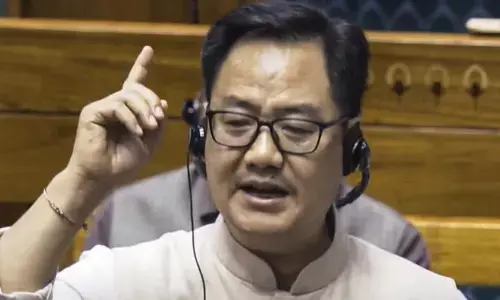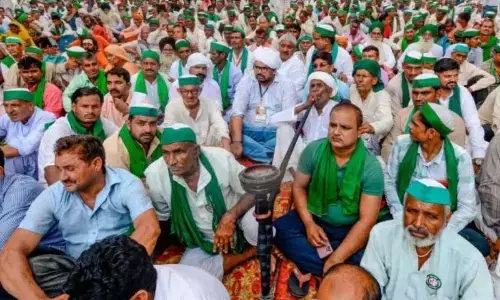Varsity Vacancies: Recruitment board riddled with holes

Osmania University
Over 5,000 teaching, non-teaching posts remain vacant in TS varsities
It is intriguing as to why the State government plans to have a Board for recruitment when its amendments on related issues were struck down by the court. Hope better sense will prevail on the government and the Common Recruitment Board Bill initiated is withdrawn
Since the formation of Telangana State, more than 5,000 teaching and nonteaching posts remain vacant in universities across Telangana. It is no exaggeration to say that there are nearly 3,000 posts vacant in Osmania University alone.
The State government sanctioned 1,061 teaching posts to all the universities on 22 November 2017, but there is no forward movement till date. Recently, the Telangana state established the Telangana Universities Common Recruitment Board to take up the recruitment of teachers for all the State universities immediately after the approval of the Telangana Universities Common Recruitment Board Bill by the Governor of Telangana. Teacher and student associations have expressed their concern about the loopholes in this Bill.
What are the loopholes in the bill? If this bill is approved by the Governor and becomes a law, will it stand the scrutiny of the court? Is this bill in line with the UGC norms? Will the roster points system of reservations currently being implemented in Universities?
The process of recruitment in universities is where a notification is issued inviting applications from candidates. The notification specifies the vacancies in diverse subjects and the posts in various social categories. As per UGC norms, the selection committee has the Vice-Chancellor as the chairperson of the selection committee, dean of the faculty concerned, head of the department, three experts in the subject concerned, an academician representing SC/ST/OBC/Minority/Women/Differently-abled categories to be nominated by the Vice-Chancellor.
Absolute transparency is maintained in the process of selection. Earlier some modifications were brought to the structure of the selection committee of Osmania University. The selections were conducted by superseding them with the respective principals and the chairman of the board of studies, which was revoked by the State High Court, assessing that the selections were not done as per the UGC rules. As a result, the university authorities had to re-constitute the selection committee and conduct the selections as per the UGC rules.
Recruitment Board
The proposed recruitment board mooted by the Higher Education department of Telangana will be headed by the Chairman, Telangana State Council of Higher Education, Special Chief Secretary/Principal Secretary/Secretary to the Higher Education department/administrative department concerned and special CS/principal secretary/secretary, and the Finance department will be members. The Commissioner of Collegiate Education will be member-convener. The board will take up all recruitment in State universities except for the medical university.
The Board and its members are in violation of UGC norms and makes the Act untenable before the judiciary. Mandatory roster points for reservations and subjects vary from university to university. This raises questions on which roster system will be followed by this Common Recruitment Board. There is no clarity as to whether, the Board will give weightage to contract lecturers who have been working for the last 15-20 years or whether those recruited by this board can be transfer to other State universities in future.
In the past, the governments of many states brought some changes in the appointments of university teachers and vice-chancellors. Those changes were against the UGC norms and diluted the autonomy of the universities.
Further, It may be pointed out that there is a precedent when the courts struck down the amendments on minimum qualifications of five year tenure (UGC specifies 10 years) for appointment of Vice chancellor by State universities. According to the UGC Regulations, 2018, the “Visitor/Chancellor” — mostly the Governor in states — shall appoint the VC out of the panel of names recommended by search-cum-selection committees. The Governor’s tole will be curtailed.
It is intriguing as to why the State government plans to have a Board for recruitment when its amendments on related issues were struck down by the court. Hope better sense will prevail on the government and the Common Recruitment Board Bill initiated is withdrawn. (Writer is a research scholar in Osmania University)










